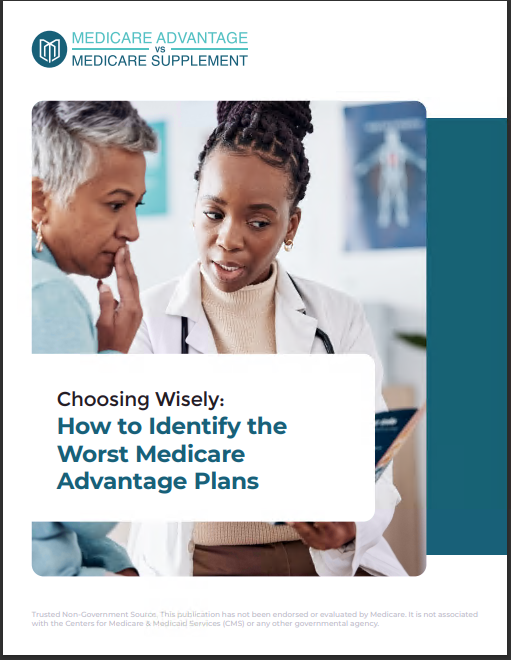Key Takeaways
- Medicare is a federal health insurance program primarily for people 65 and older, while Medicaid is a joint federal and state program for low-income individuals of all ages.
- Understanding the differences in eligibility, coverage, and costs can help you determine which program best suits your needs.
Trying to Figure Out Medicare vs. Medicaid? Here’s What Makes Them Different
Navigating the complex world of health insurance can be challenging, especially when it comes to understanding the differences between Medicare and Medicaid. These two programs, though both government-funded, serve different purposes and populations. Let’s dive into the key distinctions and help you understand which program might be right for you or your loved ones.
What’s the Big Difference Between Medicare and Medicaid?
Medicare and Medicaid are both essential components of the U.S. healthcare system, but they serve different demographics and have distinct eligibility criteria. Medicare primarily provides health coverage for individuals aged 65 and older, as well as some younger people with specific disabilities. In contrast, Medicaid is designed to assist low-income individuals and families, regardless of age, offering a broader safety net for those who cannot afford healthcare.
Medicare is often described as an insurance program because the individuals who benefit from it typically have paid into the system through payroll taxes during their working years. Conversely, Medicaid functions more as an assistance program, providing medical aid based on financial need. This fundamental difference shapes many aspects of how each program operates and whom it serves.
Who Qualifies for Medicare vs. Medicaid?
Eligibility is one of the primary distinctions between Medicare and Medicaid. To qualify for Medicare, you must be 65 or older, or under 65 with certain disabilities or conditions such as end-stage renal disease or amyotrophic lateral sclerosis (ALS). Most people qualify for Medicare Part A (hospital insurance) without paying a premium because they or their spouse paid Medicare taxes while working.
Medicaid eligibility, however, is primarily income-based and varies by state. Generally, it covers low-income individuals, including families with children, pregnant women, the elderly, and people with disabilities. The income thresholds for Medicaid are determined by the federal poverty level (FPL), but each state has its own specific criteria and income limits, which can also be influenced by whether the state has expanded Medicaid under the Affordable Care Act (ACA).
In states that have expanded Medicaid, the program covers all adults with incomes up to 138% of the FPL. This expansion aims to provide coverage for more low-income individuals, including childless adults who might not have qualified under previous rules.
How Are Medicare and Medicaid Funded?
Funding for Medicare and Medicaid also differs significantly. Medicare is funded through a combination of payroll taxes, premiums paid by beneficiaries, and general federal revenue. The payroll tax contributions go into two trust funds: the Hospital Insurance Trust Fund for Part A and the Supplementary Medical Insurance Trust Fund for Parts B (medical insurance) and D (prescription drug coverage).
Medicaid, on the other hand, is funded jointly by the federal and state governments. The federal government provides a portion of the funding through a matching rate known as the Federal Medical Assistance Percentage (FMAP), which varies by state based on the state’s average income level. States with lower average incomes receive a higher federal match. This collaborative funding structure means that Medicaid programs can vary widely from state to state in terms of benefits and coverage.
What Services Do Medicare and Medicaid Cover?
Both Medicare and Medicaid cover a range of health services, but there are distinct differences in what each program typically includes. Medicare is divided into parts that cover specific services:
- Part A: Hospital insurance, covering inpatient hospital stays, skilled nursing facility care, hospice care, and some home health care.
- Part B: Medical insurance, covering outpatient care, preventive services, ambulance services, and durable medical equipment.
- Part D: Prescription drug coverage, which helps cover the cost of prescription medications.
- Medicare Advantage (Part C): An alternative to Original Medicare that bundles Parts A, B, and usually D, and is offered by private insurance companies. These plans often include additional benefits like dental, vision, and hearing care.
Medicaid, however, provides a more comprehensive set of services, often tailored to the needs of low-income populations. Typical Medicaid benefits include hospital and physician services, long-term care, laboratory and X-ray services, family planning, and early and periodic screening, diagnostic, and treatment (EPSDT) services for children. Some states offer additional benefits such as dental and vision care, as well as transportation to medical appointments.
Can You Have Both Medicare and Medicaid?
Yes, it is possible to be eligible for both Medicare and Medicaid, a situation known as dual eligibility. Dual-eligible individuals can receive benefits from both programs, which can help reduce out-of-pocket costs and provide more comprehensive coverage. Medicare typically pays for services first, with Medicaid covering additional costs like premiums, deductibles, and coinsurance, as well as services not covered by Medicare.
Dual-eligible beneficiaries often enroll in Medicare Advantage plans known as Special Needs Plans (SNPs), which are tailored to their specific health and financial needs. These plans coordinate Medicare and Medicaid benefits to ensure that dual-eligible individuals receive the care they need without unnecessary costs.
Navigating the Enrollment Process
Enrolling in Medicare and Medicaid requires navigating different processes. For Medicare, individuals generally enroll around their 65th birthday. The Initial Enrollment Period (IEP) begins three months before the month you turn 65 and ends three months after. If you miss your IEP, you can enroll during the General Enrollment Period (GEP) from January 1 to March 31 each year, but you might face late enrollment penalties.
Medicaid enrollment, however, is open year-round. Individuals can apply through their state’s Medicaid office or via the Health Insurance Marketplace. The application process involves providing detailed financial information to determine eligibility based on income and family size.
Why Medicare and Medicaid Can Be Confusing
The complexity of Medicare and Medicaid stems from their different structures, funding mechanisms, and eligibility requirements. Medicare’s division into parts and optional private plans (Medicare Advantage) can make choosing the right coverage challenging. Meanwhile, Medicaid’s variability by state and income-based eligibility add layers of complexity for potential beneficiaries.
Another source of confusion is the interaction between the two programs for dual-eligible individuals. Coordinating benefits from both Medicare and Medicaid requires understanding the rules and regulations of both programs, which can be daunting without assistance.
Tips for Maximizing Your Benefits
To make the most of your Medicare and Medicaid benefits, consider the following tips:
- Understand Your Eligibility: Ensure you know whether you qualify for Medicare, Medicaid, or both. This will help you access the correct benefits.
- Choose the Right Plan: For Medicare, decide whether Original Medicare or a Medicare Advantage plan best meets your needs. Compare benefits, costs, and coverage options carefully.
- Apply Early: Don’t wait until the last minute to enroll in Medicare or apply for Medicaid. Early enrollment ensures you start receiving benefits as soon as you are eligible.
- Seek Assistance: Navigating these programs can be complex. Don’t hesitate to seek help from licensed insurance agents, state Medicaid offices, or Medicare resources.
- Review Annually: Your health needs and financial situation can change. Review your coverage options annually during open enrollment periods to ensure you have the best coverage for your needs.
Making the Right Choice for Your Health Care Needs
Choosing between Medicare and Medicaid depends on your age, income, and health care needs. Medicare is primarily for older adults and certain younger individuals with disabilities, providing comprehensive coverage through its different parts. Medicaid offers vital support for low-income individuals of all ages, covering a wide range of health services and minimizing out-of-pocket costs.
Understanding the key differences between these programs can help you make informed decisions about your health care coverage. Whether you’re approaching retirement age and considering Medicare, or you’re a low-income individual in need of Medicaid, knowing the specifics of each program will empower you to choose the best option for your situation.
Planning for the Future
As health care needs evolve, staying informed about changes to Medicare and Medicaid is crucial. Policy changes, new health care laws, and shifts in state regulations can impact your coverage and benefits. Regularly check official resources like Medicare.gov and Medicaid.gov for updates and consult with health care professionals to stay ahead of any changes that might affect your coverage.
In summary, both Medicare and Medicaid play essential roles in the U.S. health care system, providing critical services to different populations. By understanding their differences, eligibility requirements, and benefits, you can navigate these programs more effectively and ensure you receive the health care coverage you need.
Conclusion
Understanding the differences between Medicare and Medicaid is crucial for making informed health care decisions. These programs serve distinct populations with specific needs and provide varying types of coverage. By recognizing who qualifies, how the programs are funded, and what services they cover, you can better navigate your health care options and maximize your benefits. Whether you’re approaching eligibility for Medicare or need assistance from Medicaid, staying informed and proactive will help you make the best choices for your health and financial well-being.
Contact Information:
Email: [email protected]
Phone: 4055551234










